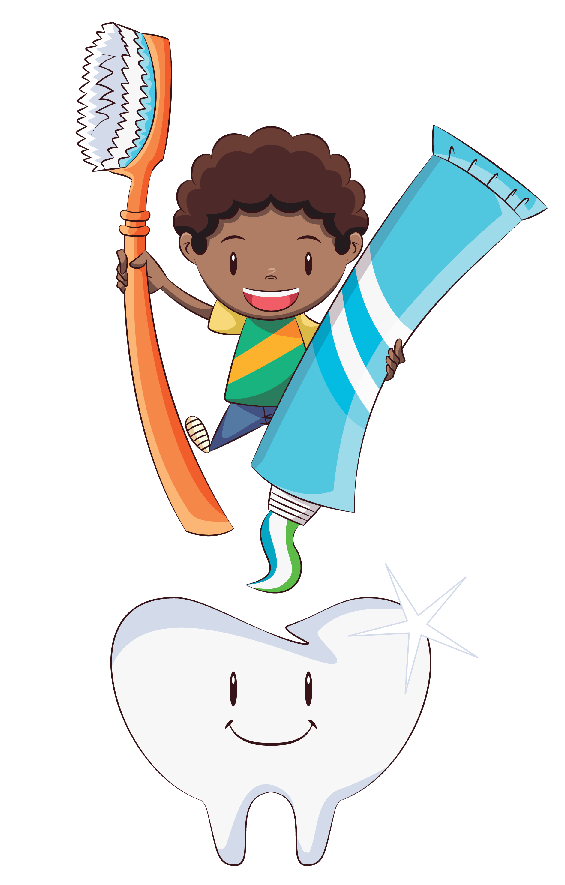7 Myths About Baby Teeth
There is a lot of false information unsuspecting parents can pick up surrounding their children’s baby teeth. That’s why we have put together a list of the most common 7 myths about baby teeth. Learn the truth about your child’s dental care.
Myth #1: My child is old enough to brush on their own.
While your child might be convinced they are ready to brush their teeth on their own, and you might be willing to send them off to bed without supervision, don’t jump the gun on taking off the proverbial training wheels. Dentists and dental associations agree that children do not have the dexterity to hit all the hard to reach areas until they can write in cursive. Even after they have achieved this stage, it is still a parent’s responsibility to monitor brushing habits and make sure the kiddos are brushing thoroughly.
Myth #2: Cavities in baby teeth are no big deal. 
Tooth decay at any stage is very serious and should be taken care of immediately. Cavities or tooth decay that affects the baby teeth will have an impact on the development of your child’s permanent teeth. Studies show that children who develop cavities in their baby teeth are three times more likely to develop cavities in their permanent teeth. Furthermore, cavities can also contain harmful bacteria that can spread into your child’s bloodstream.
Myth #3: Fluoride is dangerous.
Fluoride is not only safe for children but is is also one of the most important minerals for all children. Fluoride strengthens the tooth enamel and is proven to be extremely effective in preventing tooth decay. Make sure your child is drinking plenty of water and using toothpaste containing fluoride. According to the ADA, fluoride is even safe to mix with baby formula. There is only a small risk of your infant developing mild enamel fluorosis. Enamel fluorosis does not have an effect on the health of your child or their teeth. It may, in fact, make the teeth more resistant to decay.
Myth #4: My child is prone to cavities because of genetics.
With very few exceptions cavities are 100% preventable, and cavities are not hereditary. Teeth are coated with enamel, which is the toughest material in the body. While genetics can have some influence in dental health, it is relatively small. Most cases of recurrent dental caries, also known as cavities, are due to poor dental hygiene. Cavities form when the bacteria eats little holes in the teeth. Without treatment it becomes increasingly hard to reach the bacteria in the hole, worsening the damage.
Myth #5: My child is prone to cavities because they have “soft teeth.”
While there is a condition which causes malformed enamel or “soft teeth” only 1 in 14,000 people in the United States suffers from it. Amelogenesis Imperfecta causes severe imperfections in both baby teeth and primary teeth. It also causes teeth to be much smaller, discolored, pitted, and even missing enamel in some places. Unless your child is diagnosed with this unfortunate condition, their teeth are probably perfectly healthy and capable of staying that way with diligent cleaning and care.
Myth #6: My child doesn’t need to see a dentist until preschool.
Your child’s oral hygiene begins long before their first tooth erupts. Before teeth come in, dentists recommend wiping your baby’s gums with a wet strip of gauze. You should start bringing you child to the dentist by age one, or within six months of when the first tooth erupts. Once the teeth begin to erupt, you need to start gently brushing the new teeth with a very soft children’s toothbrush. This is the time to visit the pediatric dentist. They can instruct you on the best ways to take care of your baby’s teeth.
Myth #7: It is okay to drink flavored water instead of plain water.
If your child has become accustomed to drinking sugary or flavored drinks throughout the day, it may seem easier just to indulge to avoid headaches. But, it is essential for their health and development to drink water. Drinks with flavor typically contain sugar. These drinks are often acidic, which leads to the weakening of enamel. Your child will also be missing out on the fluoride in tap water, a vital vitamin for dental health. Water and milk are the only drinks that are recommended by dentists. Everything else should be consumed in moderation.
Want to learn more about your child’s dental health or know other myths about baby teeth? Call or contact us today. We are happy to help!
Share